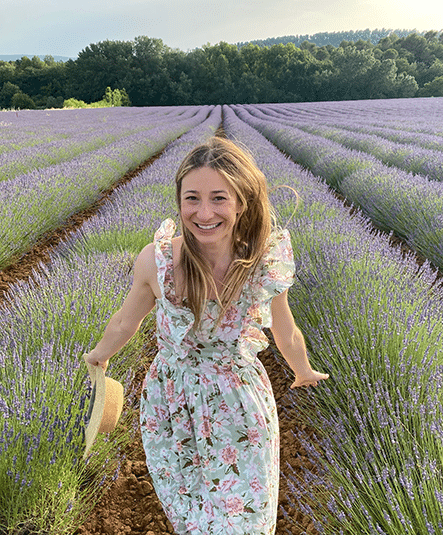Elizabeth Abel: Everyone Can Be an Inspired, Engaged Philanthropist
Elizabeth Abel, Senior Vice President of CCS Fundraising, “is a thought leader in philanthropy and expert in fundraising. She has led capital campaigns and development initiatives that have collectively raised half a billion dollars for education, healthcare, arts and culture, and
advocacy organizations.”
Recently, she agreed to share her unique perspectives on redefining philanthropy, and provide insights and tools to inspire all women to get involved in whatever meaningful way works for them.
Elizabeth Abel on the meaning of philanthropy:
RCG: I wonder if we could begin by discussing your perspective on the meaning of philanthropy?
Elizabeth Abel: I believe philanthropy is one of the most powerful ways to make the world a more just, equitable, and inclusive place. I recognize that feels very lofty and that when most people hear the word philanthropy, we believe you need to be a high net worth individual to be charitable.
But in fact, there are many ways to be a philanthropist; one is donating money, another is volunteering, and another is being an advocate.
I encourage people who want to engage in philanthropy to ask themselves, “What are the causes and the organizations that are important to you, and how can you apply your perspectives, energy, and talents to further those missions?”
That’s the beauty of philanthropy. For those who want to make a gift, it’s what’s meaningful for you. There are so many ways to do that.
For some, this may be a $10 monthly donation. For someone else, it might be a $10,000 contribution. At the end of the day, every gift matters and makes a difference.
RCG: I agree that there’s a misperception that you must be wealthy to be considered a philanthropist, and that’s a shame.
Elizabeth Abel: The actual word philanthropy means ‘love of humankind.’ It’s derived from the Greek words “Philos,” which means loving, and “Anthropos,” which means humankind. So there’s nothing about money in the definition of philanthropy. It’s all about the desire to promote the welfare of others.
Advice on how to get involved:
RCG: So, if I’m a busy working mom juggling many balls in the air, yet I want to get involved, how would you suggest I get started?
Elizabeth Abel: Great question! So, I think that it’s essential to give to a trusted source whenever events are going on in the world that takes our focus, attention, and dollars.
Often big advocacy and human service organizations with solid reputations are a great place to make a gift if you don’t have a relationship.
What we find is that people give to people. They donate to leaders of organizations whose vision inspires them.
Questions to consider might be, “What organizations do you have a connection to? What causes do you care most about? How can you build a relationship with that organization and its leadership so that you feel engaged to make a difference in a way that’s important to you?”
RCG: So it’s vital to have that comfort level. I’ve given to different organizations in the past, but sometimes it wasn’t a sustaining relationship. I’m now finding more joy in giving to the same few organizations more durably.
The importance of cultivating a relationship with an organization:
Elizabeth Abel: I think that’s an important distinction. The most meaningful experiences aren’t transactional. They’re based on a relationship that an individual has with an organization.
Perhaps their family was touched by the work that the organization was doing. Or if it’s a school, maybe you were a former student. If it’s a hospital, perhaps a family member was treated there.
Ultimately, we give to organizations that we feel we have a connection to or are making a real difference in the lives of our community.
The deeper you connect with a purpose, the more fulfilling it can be.
RCG: The idea of relationship and giving is touching on a deeper level right now because I recently looked back at The Book of Joy. The Dalai Lama says, “Taking care of others, helping others, ultimately is the way to discover your joy and to have a happy life.”
It’s like if we’re not giving, a piece of our heart isn’t fulfilled.
So if we have a relationship with an organization, not only can we give more consistently, but we can feel the benefits of giving more deeply.
It’s not just writing the check. If I can connect more to the purpose and the mission, it’s better for me, too. And I’ll continue to be involved longer.
Elizabeth Abel: So true. In my experience, people give more after they volunteer. One of the reasons for that is that volunteer experience builds community. It builds authentic engagement. It makes people feel like valued members of the organization.
And they’re invested in terms of their time and talent. That often translates to philanthropy.
One of the things I encourage people to do is to join a committee or board and attend events. Schedule one-on-one meetings with people in the community to decide if this is an organization you want to be a part of and that you wish to support with your charitable dollars.
RCG: I love what you said earlier too. A financial gift of any size, no matter how large or small, is so valuable. It still makes a difference.
Elizabeth Abel reminds us that every gift counts!
Elizabeth Abel: I work on capital campaigns across institutions and sectors. During one campaign, we prepared for significant six and seven-figure solicitations. But at the end of the school year, one of the students presented an envelope filled with dollar bills and change to the head of school. He said, “I saved my allowance so that I could participate.”
We had a long list of high-capacity donors, yet the story I’m telling you is about the little boy who saved his allowance!
RCG: What a great story!
Starting young! The importance of building a culture of giving back at home:
Elizabeth Abel: I agree! I have a two-year-old daughter, and my husband and I are discussing ways to teach her about philanthropy.
When she gets a bit older, we’re thinking about helping her put her allowance money away and then asking her where she’d like to donate part of her money at the end of every quarter. It would be great to instill that model! And the value of giving back at an early age is huge.
RCG: Every family culture is different. And it seems every company culture is different regarding this topic. What have you found to be true?
Elizabeth Abel: It’s encouraging to see people give in different ways.
That is the beauty of philanthropy. People want to make a difference. Philanthropy is a powerful tool to drive social change.
RCG: I’m so grateful we had this discussion about philanthropy and have redefined what it means. And to validate that it’s not just about wealth – anyone can be a philanthropist. It’s not about how much you give; it’s more about who you are in your heart and as a person.
Elizabeth Abel: Exactly!
RCG: Thank you so much for sharing such insights on philanthropy and providing many actionable ways to get involved!
Elizabeth Abel: My pleasure! Thank you for having me.
More about Elizabeth Abel:
“Elizabeth has been recognized by BELLA Magazine as a “Woman of Influence in Philanthropy.” She is an instructor at the University of Pennsylvania, where she teaches “Fundraising & Philanthropy: The Donor Journey” to graduate students in the Nonprofit Leadership Program. Elizabeth serves on the Board of the Nonprofit Leadership Program Alumni Association. In 2020, she was inducted into the School of Social Policy and Practice Alumni Hall of Fame for her work with mission-driven organizations. Elizabeth offers her fundraising expertise at industry conferences, on nonprofit podcasts, and on social media platforms including LinkedIn and Instagram.”
Would you like to give back by using your creativity? Consider sending homemade cards to the Nursing Home Card Project.






Leave a Reply
Want to join the discussion?Feel free to contribute!